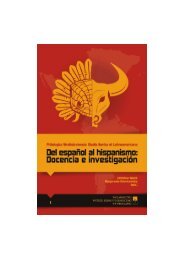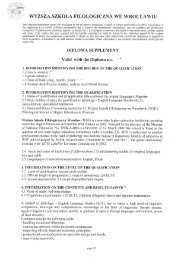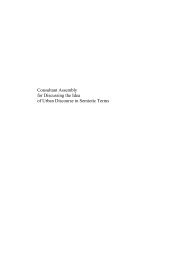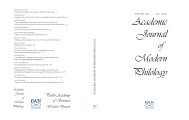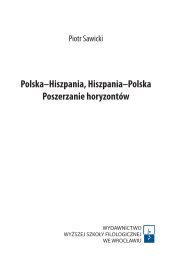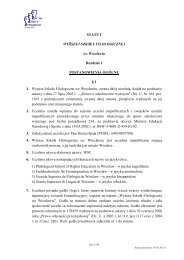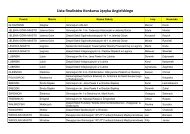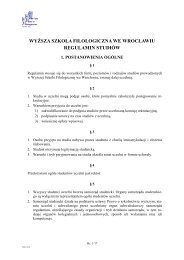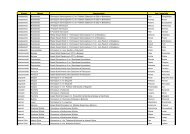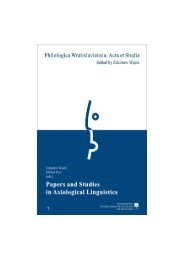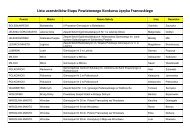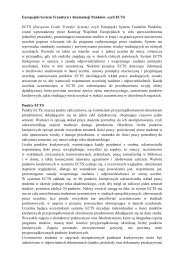s - Wyższa SzkoÅa Filologiczna we WrocÅawiu
s - Wyższa SzkoÅa Filologiczna we WrocÅawiu
s - Wyższa SzkoÅa Filologiczna we WrocÅawiu
Create successful ePaper yourself
Turn your PDF publications into a flip-book with our unique Google optimized e-Paper software.
KATARZYNA JAWORSKA-BISKUP<br />
UNIVERSITY OF SZCZECIN<br />
English-Polish language contact in the translation<br />
of EU law<br />
ABSTRACT. The article addresses the issue of translating EU legislation with an emphasis<br />
placed on the difficulties English terminology may pose for a Polish translator. The examples<br />
collected from the Consolidated Versions of the Treaty on the European Union and the<br />
Treaty on the Functioning of the European Union show that language contact in the<br />
translation process might be a source of many terminological inconsistencies and<br />
ambiguities. In addition, it can be observed that the Polish translations of EU documents<br />
become more and more infused with the features of the English language, which only<br />
supports the thesis of the rapid expansion of this language in the world.<br />
KEYWORDS. European Union, translation, globalisation, interference, equivalence, borrowings<br />
1. Introduction<br />
Considering the issue of language contact it is probably nowhere more apparent<br />
than in the EU, the organization that is entirely based on the principle of<br />
linguistic diversity according to which the languages of all Member States shall<br />
enjoy the equal status, the right vested in many legal instruments such as, for<br />
instance, the Vienna Convention on the Law of Treaties of 1969.<br />
Pushing for a moment legal deliberations aside, one cannot escape the observation<br />
that a multitude of language versions of primary and secondary legislation,<br />
or to put it differently, the “encounter of languages in translation” triggers<br />
many linguistic phenomena that can be put under the umbrella term of<br />
language interference. Particularly, it is visible when comparing the original and<br />
translated documents. This is also the case in the Polish and English languages<br />
since Polish accession to the EU in 2004.<br />
2. The notion of English-Polish language contact<br />
It is an obvious fact that due to recent changes, such as globalization, the<br />
fall of communism in the east European countries and the introduction of democracy<br />
therein as <strong>we</strong>ll as hegemony of <strong>we</strong>st culture, especially the American<br />
and British culture, the Polish language has undergone a considerable evolution<br />
visible in everyday communication. This phenomenon did not escape the attention<br />
of linguists who combine more and more data of new lexical items that are<br />
LANGUAGES IN CONTACT 2011



